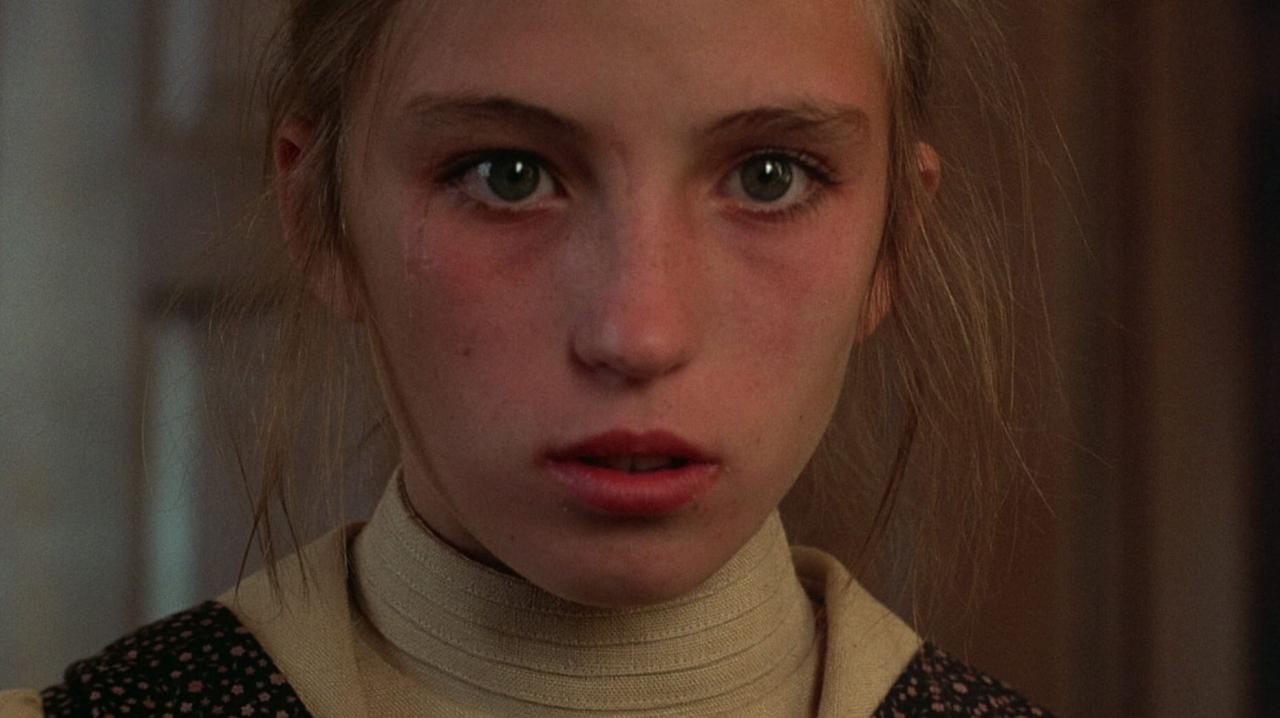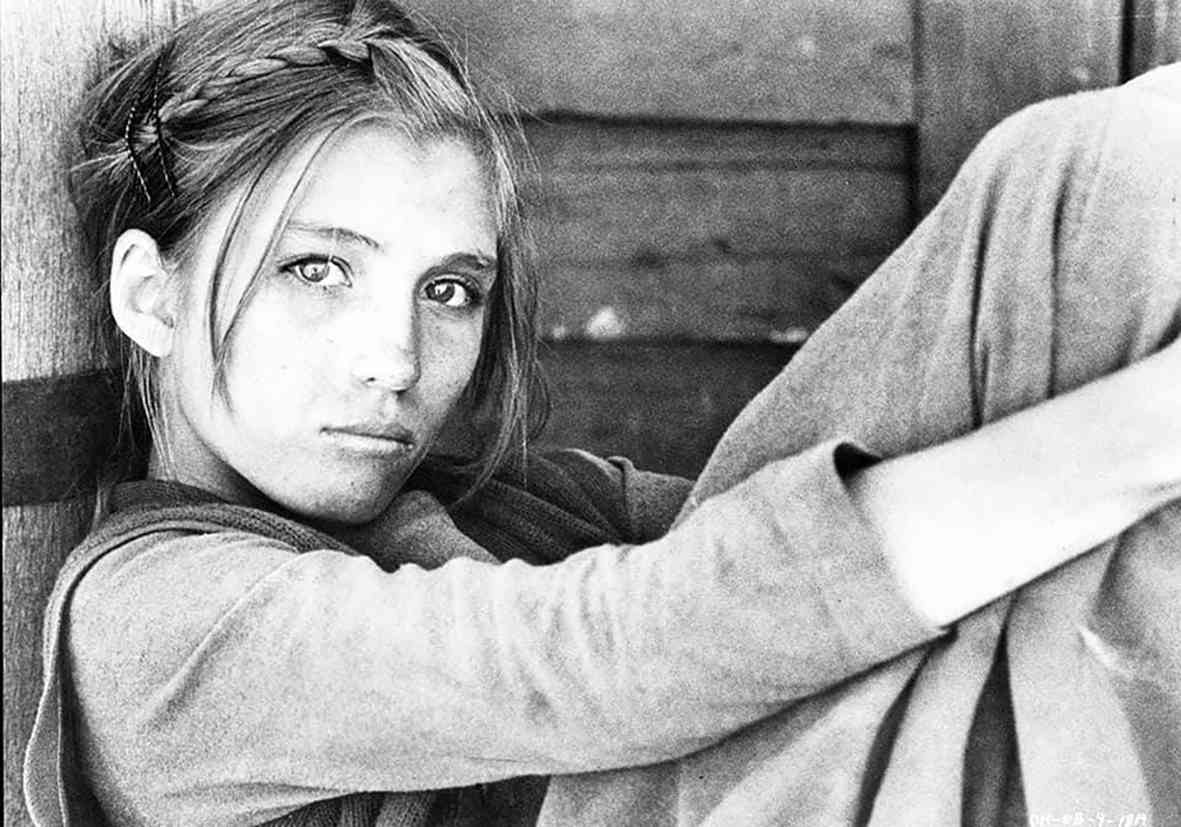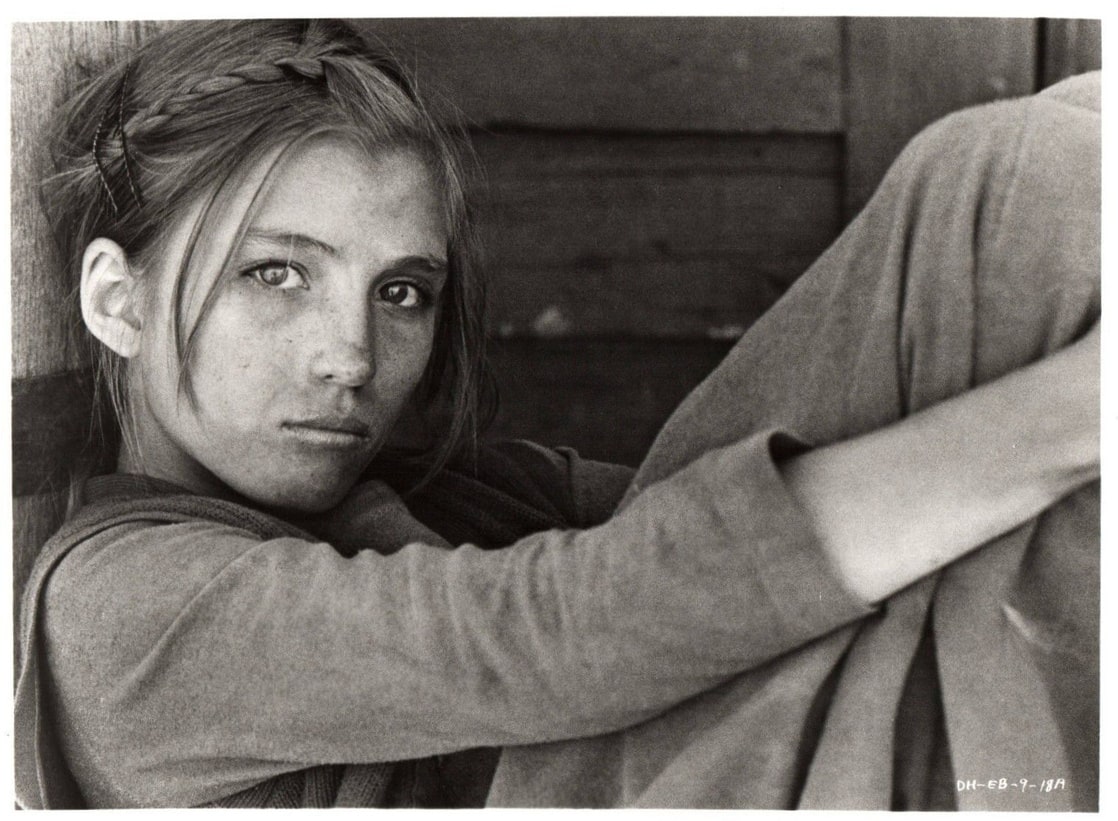Linda Manz, an iconic actress of the 1970s and 1980s, left an indelible mark on the film industry and popular culture. With her unique acting style and portrayal of marginalized characters, Manz resonated with audiences, becoming a symbol of rebellion and youth culture.
Her notable roles in films like “Days of Heaven,” “The Wanderers,” and “Out of the Blue” showcased her range and emotional depth, capturing the experiences and aspirations of young people.
Linda Manz
Linda Manz was an American actress known for her distinctive voice and naturalistic acting style. Born in New York City in 1961, she began her career at a young age, appearing in several commercials and television shows.
Manz’s breakthrough role came in the 1978 film “Days of Heaven,” directed by Terrence Malick. Her portrayal of the young Linda, a tomboyish farm girl, earned her critical acclaim and a nomination for a Golden Globe Award. She went on to star in several other notable films, including “The Wanderers” (1979), “Out of the Blue” (1980), and “Teachers” (1984).
Manz’s acting style was characterized by her ability to convey complex emotions with a raw and authentic intensity. She often played troubled or rebellious characters, and her performances were known for their honesty and vulnerability.
Despite her early success, Manz’s career was cut short by her untimely death in 2020 at the age of 58. However, her legacy as a talented and influential actress continues to inspire filmmakers and audiences alike.
Linda Manz’s Notable Roles
Linda Manz’s performances showcased her exceptional talent and range. She brought depth and authenticity to each character, leaving an unforgettable mark on audiences and critics alike.
“Days of Heaven”
In Terrence Malick’s “Days of Heaven” (1978), Manz played the enigmatic Linda, a young woman torn between two brothers. Her portrayal captured the character’s vulnerability, resilience, and longing with remarkable sensitivity.
“The Wanderers”
As Richie Canarsie in Philip Kaufman’s “The Wanderers” (1979), Manz embodied the rebellious spirit of a teenager navigating the complexities of adolescence. Her performance exuded a raw energy and a profound understanding of the character’s inner turmoil.
“Out of the Blue”
In Dennis Hopper’s “Out of the Blue” (1980), Manz’s portrayal of Cebe Rhodes, a teenage punk rocker, was both heartbreaking and exhilarating. Her performance captured the character’s alienation, anger, and the destructive path she takes as she struggles to find her place in the world.
Linda Manz’s Impact on Youth Culture
Linda Manz emerged as a teen icon in the 1980s, captivating audiences with her raw and authentic performances that resonated deeply with young people. Her portrayal of rebellious and unconventional characters reflected the experiences and aspirations of a generation grappling with societal norms and searching for their own identities.
Linda Manz’s Portrayal of Rebellious Characters
Manz’s performances often centered around rebellious and unconventional characters, such as her role as Kate Beringer in “Out of the Blue” (1980). These characters challenged societal expectations, embracing individuality and rejecting conformity. Through her performances, Manz gave voice to the frustrations and aspirations of young people who felt misunderstood or marginalized.
Manz’s portrayal of these rebellious characters had a significant impact on youth culture, encouraging young people to embrace their own unique identities and to question the status quo. Her performances provided a sense of validation and empowerment for those who felt like outsiders, helping to shape the emerging youth subcultures of the 1980s.
Linda Manz, the acclaimed child actress who starred in “Days of Heaven,” was known for her precocious talent and unique voice. Her performances resonated with audiences, earning her recognition as a “woman of the hour” among real people. The woman of the hour real people movement celebrates individuals who make a significant impact on their communities, and Linda Manz’s contributions to the world of cinema continue to inspire.
Manz’s Influence on Youth Culture
Beyond her individual performances, Manz’s overall presence in popular culture had a lasting impact on youth culture. Her rebellious spirit and authentic style inspired a generation of young people to embrace their own individuality and to pursue their dreams. She became a symbol of youth rebellion and self-expression, and her influence can still be seen in contemporary youth culture.
Manz’s legacy as a teen icon continues to inspire young people today. Her performances remain a reminder of the power of authenticity and the importance of embracing one’s own unique identity. She remains an enduring symbol of youth rebellion and a role model for those who dare to be different.
Linda Manz’s Personal Life and Challenges
Linda Manz’s personal life was marked by both triumphs and struggles. She was born into a large working-class family in New York City in 1961. Her father was a cab driver, and her mother was a homemaker. Manz had a close relationship with her mother, who was supportive of her acting aspirations. However, her relationship with her father was more strained. He was often absent and struggled with alcoholism.
Manz’s childhood was also marked by poverty and instability. The family moved frequently, and Manz often had to share a bed with her siblings. Despite these challenges, Manz remained a bright and creative child. She loved to read and write, and she had a natural talent for acting.
Impact of Childhood Experiences
Manz’s childhood experiences had a profound impact on her acting. She was able to draw on her own experiences of poverty and instability to create authentic and believable characters. She was also able to use her sense of humor to find the lighter side of even the darkest situations.
Manz’s childhood experiences also took a toll on her personal life. She struggled with depression and anxiety, and she had difficulty forming lasting relationships. She was also addicted to drugs and alcohol for a time.
Challenges as a Young Actress
Manz faced a number of challenges as a young actress in a male-dominated industry. She was often typecast in roles that reinforced stereotypes about working-class women. She was also paid less than her male counterparts.
Despite these challenges, Manz persevered. She continued to act throughout her life, and she became a respected and admired figure in the film industry. She was a pioneer for women in film, and she helped to pave the way for other actresses from working-class backgrounds.
Linda Manz’s Legacy and Influence
Linda Manz’s brief but impactful career left an enduring mark on the film industry and popular culture. Her naturalism, vulnerability, and ability to convey complex emotions with remarkable depth resonated with audiences and critics alike.
Inspiration and Influence on Actors and Filmmakers
Manz’s performances inspired a generation of actors, including River Phoenix, Ethan Hawke, and Winona Ryder, who admired her ability to capture the raw emotions and complexities of adolescence. Her work also influenced filmmakers such as Gus Van Sant, who cast her in his debut feature, “Mala Noche” (1985).
Preservation and Celebration of Her Legacy
Manz’s legacy has been preserved and celebrated through various initiatives. In 2016, the documentary “Linda Manz: On the Road to Hollywood” was released, providing an intimate look into her life and career. Additionally, Manz’s films continue to be screened at film festivals and retrospectives, ensuring her work remains accessible to new generations of viewers.
Continuing Impact on Audiences
Linda Manz’s work continues to resonate with audiences today. Her performances offer a poignant reminder of the challenges and triumphs of adolescence, capturing the complexities of human experience with authenticity and grace. Her legacy serves as an inspiration to young actors and filmmakers, demonstrating the power of naturalism and emotional depth in storytelling.
Linda Manz’s Cultural Significance
Linda Manz’s contributions to American cinema and cultural landscape are undeniable. Her unique ability to portray marginalized and misunderstood characters resonated with audiences and left an enduring legacy. Through her raw and authentic performances, Manz humanized the struggles and perspectives of often-overlooked individuals, fostering empathy and understanding.
Representation of Marginalized Characters
Manz’s characters were often outcasts, rebels, and misfits. She brought a level of authenticity to these roles that challenged societal norms and stereotypes. In “Days of Heaven,” she played the tomboyish and independent Linda, a character who defied gender expectations and societal conventions. Similarly, in “Out of the Blue,” she portrayed Cebe, a troubled and alienated teenager struggling with mental health issues. Manz’s performances gave voice to the experiences and struggles of those who felt marginalized and misunderstood, creating a sense of relatability and validation.
Eliciting Empathy and Understanding
Manz’s performances had a profound impact on audiences, eliciting empathy and understanding for characters who might otherwise have been dismissed or judged. Through her nuanced and emotionally charged portrayals, she humanized these individuals, revealing their vulnerabilities and complexities. Her ability to connect with audiences on a deeply personal level fostered a sense of compassion and challenged preconceived notions about marginalized groups.
Influence on the Cultural Landscape, Linda manz
Manz’s work played a significant role in shaping the cultural landscape of the 1970s and 1980s. Her portrayal of nonconformist and misunderstood characters resonated with the counterculture movement and the growing sense of alienation and disenchantment among youth. Manz’s films provided a platform for these voices to be heard, contributing to a broader cultural dialogue about identity, belonging, and the challenges faced by those who defied societal expectations.
Ending Remarks
Linda Manz’s legacy continues to inspire and influence filmmakers and audiences alike. Her ability to evoke empathy and understanding for marginalized characters, and her portrayal of unconventional and rebellious youth, cemented her status as a cultural icon.



